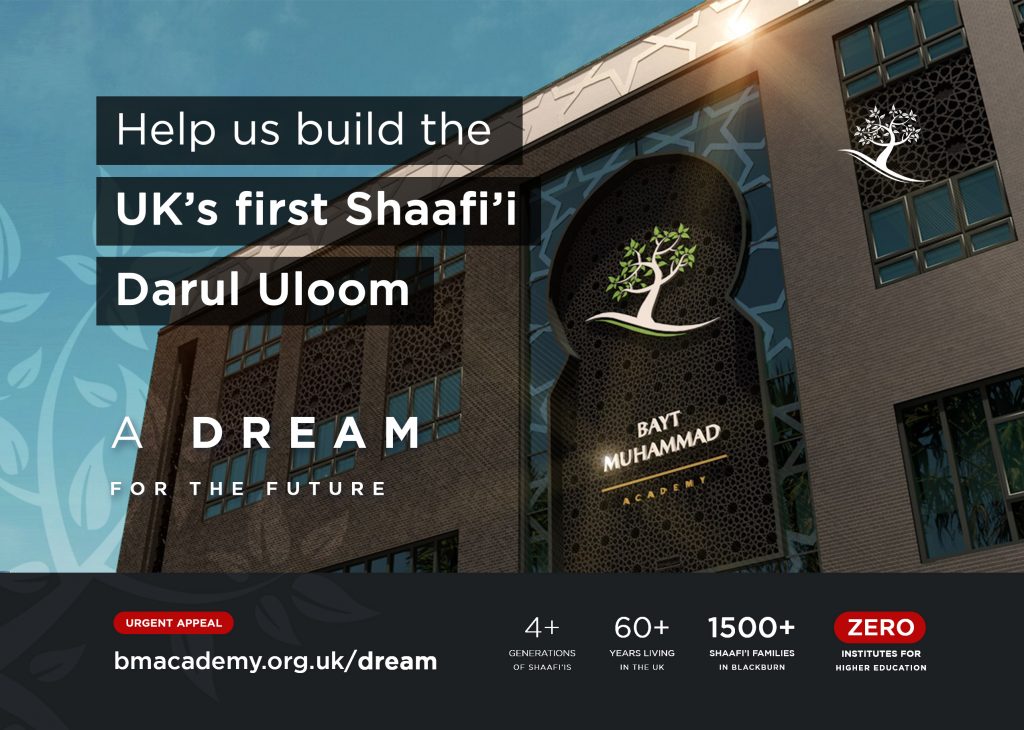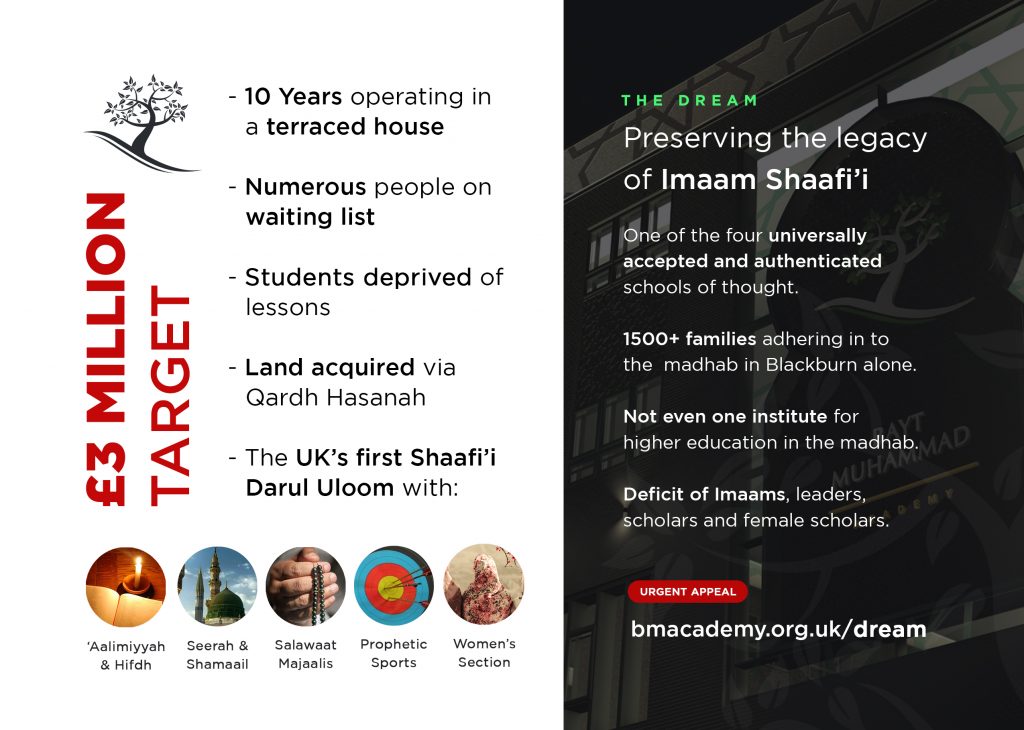بِسْمِ اللّٰهِ الرَّحْمٰنِ الرَّحِيْم
الحمد لله رب العالمين الذي منّ علی المؤمنين اذ بعث فيهم رسولا من انفسهم يتلوا عليهم ايته و يزكيهم و يعلمهم الكتاب و الحكمة و ان كانوا من قبلُ لفي ضلال مّبين
Our Prophet ﷺ continued to grow and develop in his teenage years, living in the home and care of Abu Taalib and Sayyidah Fatimah bint Asad رضی الله عنها. Outside their loving home, he ﷺ would also be accompanied by his extended family, especially the likes of his young uncles; Sayyidinaa Hamzah ibn Abdul Muttalib رضی الله عنه and Sayyidinaa Abbas ibn Abdul Muttalib رضی الله عنه, both of whom were also growing up alongside the Prophet ﷺ.
This was however, a time when Arabia – and the world at large – was amidst a dark-age of Jahiliyyah (Ignorance). Over half a millennium had passed since the last mighty Prophet of Allah; Sayyidinaa ‘Isa علیه السلام had been raised to the heavens, and the perils of disbelief had bought the world to its knees. The people of Makkah had particularly become deeply-rooted in this darkness of ignorance.
The Age of Ignorance
The pure Tawheed (Oneness) of Allah that Makkah was founded upon by Sayyidinaa Ibrahim علیه السلام was overshadowed and forgotten to such an extent, that the remaining few became known as outcasts and labelled the “Muwahhidoon” (The Proclaimers of One God). Shirk (Paganism/Polytheism) and idol-worship had contaminated its now built-up streets, whilst the pure Kaa’bah was surrounded by three-hundred and sixty gruesome idols. The hearts of its people had been shackled by fear, superstition, and false-beliefs concocted by its corrupt leaders.
Honesty and integrity were mere facades, portrayed by hearts that only sought to exploit. Hayaa (Modesty) was stripped to the toe, in men and women alike. Women had been made commodities of pleasure without right. Daughters were buried alive, children were sold and bought, and human-trafficking was an open-sport.
The rich and elite chieftains conducted a monopoly over every aspect of governance, ensuring their needs were suited. The rich were enriched and the poor impoverished. They ensured people would only do, say and believe as they wish. From open-drinking to a limitless count of wives, they strove to enjoy every luxury possible. Their table-spreads could not contain the masses of food they indulged in and wasted. Wine flowed like water, and meat was prepared more abundantly than grains. All whilst the remaining majority of the city starved and survived on scraps, sleeping on the streets and working hard throughout the day.
Tribalism and nationalism were ingrained in their blood. The concept of superiority deluded their hearts to endless pursuit. Racism, prejudice and apartheid were glorified and instilled in one and all, as though it was an indisputable birth-right of the self-proclaimed “racially and socially elite” to be served and revered by those they classed as inferior.
Greed and oppression were rampant throughout the city. The rights of the weak and defenceless were relentlessly trampled upon. Slaves and servants were starved and tortured, women mercilessly beat, customers exploited and fierce wars fought like harmless sport. Yet there was no single system of justice or welfare to protect the rights of any individual, only the corrupt chieftains that had assumed the role of judge, jury and executioner, however their flame filled eyes saw fit.
Mean whilst, there also existed a paradox amidst these evils, whereby these same individuals displayed virtuous and praise-worthy traits. Hospitality, generosity, respect, integrity, moral obligation and the honour of one’s word would be extensively upheld, but only for the sake of glory and self-repute, competing with others in the most in-sincerest of manners.
However, the innocent eyes of the Prophet ﷺ grew up witnessing such a world, whilst his pure heart was filled with absolute repulsion for all of these atrocities. He ﷺ grew up in this corrupted environment while being free from any such influence. Even in these dark streets, the Prophet ﷺ was protected upon the pure fitrah of Sayyidinaa Ibrahim علیه السلام. His ﷺ heart saw mercy for such a society contaminated by ignorance and oppression.
War, and the Struggle for Peace
In addition to the daily brand of corruption, many awful events unfolded before his ﷺ blessed eyes as he was growing up. During the teenage life of the Prophet ﷺ, when he was approximately fifteen years of age, a well-known battle named “Harb Al-Fujjar” (The Sacrilegious War) took place. It was given its name due to its inception being the result of unethical and unjust events that occurred in and violated the code of the “Ash-hur Al-Huram” (The Sacred Months).
The people of Makkah had still upheld some of the most salient features of the Abrahamic tradition – albeit with a twisted dilution that suited their corrupt agendas. From amongst these, was the practice of Hajj and the observance of the four sacred months; Muharram, Rajab, Dhul Qa’dah and Dhul Hijjah. The sanctity and observance of these months involved a number of restrictions with absolute Hurmah (Prohibition) that could not be violated at any cost. This included many forms of war and battle. However, on the occasion of the Harb Al-Fujjar, major incidents occurred during these months and their sanctity was violated through this war.
This ‘Cold War’ style conflict took place between the clans of Qays and Quraysh, as a result of a trade-related dispute. The heated dispute concluded with the murder of one individual at the hands of the other party. The culture of the Arabs dictated that the supporting clans would ally to defend against the ‘honour-seeking opposition’ instead of settling the issue with alternative means, such as retribution or blood money. The years that followed was a type of stalemate, as neither party wanted a full-scale war, thus only five days of total-warfare occurred.
Due to the central involvement of the Quraysh, the immediate family of the Prophet ﷺ was also in danger of the cross-fire and had to rise to the defence. Whilst the Prophet ﷺ had shown no support to the injustice and motives of the conflict – with some narrations reporting his total exclusion from engaging at any level – it is related that he bravely rose to the challenge when it came to defending his family. Although he ﷺ was too young to participate, he assisted his uncles by collecting fallen arrows from the opposing enemy for re-use.
The aftermath of these incidents had left the society of Makkah in an extremely war-torn state, with countless blood-shed, broken homes, suspended livelihoods, elevated poverty levels, numerous orphans and countless widows. Makkah and its people – now more than even – were in desperate need of a system of welfare that could help restore families and re-build Makkah from the post-war ruins it was facing.
Join us tomorrow as we continue with our next article: “Hilf Al-Fudhool: Rebuilding Makkah”

